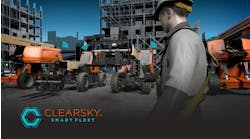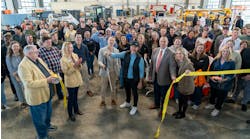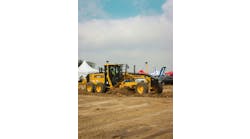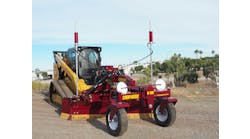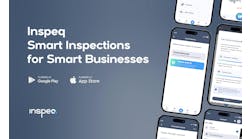As you'll read in this month's cover story, it's been a great year for software developments in the rental industry. A lot of software suppliers are making their software easily adaptable to pocket PCs, iPhones and other handheld units, thus making software applications more mobile and making it easier for mechanics, sales staff and other personnel in remote situations to have access to account information, product information and other valuable data that can enable them to do their jobs more efficiently. The ability to facilitate the workflow of capturing outgoing and incoming information and recording it instantly for the whole company to benefit from reduces the number of times a document has to be handled. Wynne Systems, in addition to developing the handheld area, is adding a number of new programs including its Asset Adviser to help with decisions on when to transfer, sell or replace rental fleet. Another new Wynne program will include tiered rates based on time on rent.
Integration is another important capability that's become increasingly important and a lot of software providers are integrating software with other functionalities. Corporate Services, for example, is developing the ability to integrate with GPS, as well as tax services to seamlessly keep track of tax issues when a company may be operating in multiple states.
Point-of-Rental has developed a customer relationship management feature, also an area that a number of software providers are focusing on. Solutions by Computer is expanding its custom-development software capability for unique applications.
Orion Software has added project billing, particularly helpful when customers are working on large projects. Genysis is adding enhanced document imaging. Alert Management Systems has a large spate of new applications, including a dispatcher dashboard, a work order generator that generates properly coded work orders, an executive dashboard that provides instant analysis and summarization of key performance indicators, a web services integrator with a developer's tool kit for customer portal and on-line order integration designed for handheld portability, and more.
SmartEquip has come a long way from being basically a parts-procurement system to a well-rounded group of programs to facilitate procurement of all kinds as well as back-office efficiencies and overall service support.
This summary you just read doesn't even scratch the surface of what's out there and what's being developed. There are a number of other software providers such as Lawson Software and RentalResult and Texada that aren't mentioned in this column or only fleetingly if at all in the cover story that have made significant contributions to software and we'll continue to report on their innovations as well as new developments in accounting and dispatch, and GPS and telematics, and more, in these pages and our website, www.rermag.com.
The fact that we, in this eight-page article, barely scratch the surface is not really surprising. We'd probably need to write a book to give justice to all the developments in this field, and of course it would be obsolete by the time we finished it.
The concept of only scratching the surface brings to my mind a conversation I had with Corporate Services president Michael Saint while researching this article. Saint, who has been involved in software development for 40 years, pointed out that he has been continually aware over the years how little of the capabilities his software offers is really utilized by users. He admits that he's the same way, probably only utilizing a quarter of what Excel can do, even though he uses it regularly.
Saint recommends that rental companies not go overboard embracing technology for its own sake, but using what really makes your business better. As he points out, if you're a poor driver, a more technologically advanced car probably won't improve your driving ability. If you manage your business poorly, sophisticated software may not make you a better manager. There were well-managed businesses before anybody had computers, just as there are poorly managed businesses now that employ technologically advanced systems.
Saint suggests that when you are looking at a particular function in your software, ask one simple question: “Does it help me do what my customer expects so that he pays me?” As Saint says, if you start at that level and set really clear objectives of what your customer wants and then develop processes that really achieve those goals, your chances of employing technology to help them do that are really good.
That point made, I strongly encourage rental companies to use the best technology they can, but make sure it's for the sake of serving customers more efficiently. And take advantage of training opportunities your software providers offer. It might be the most important training opportunity you and your company can have.

